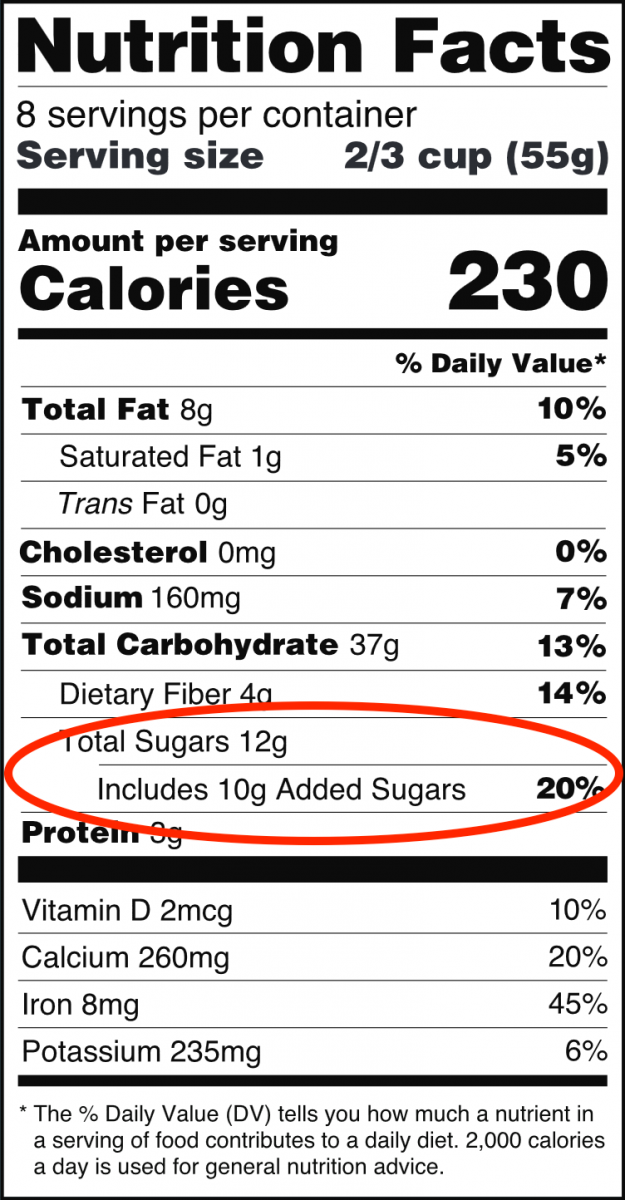Six Tips: How to Cut Sugar and Processed Foods from Your Diet
By Frida Velcani
 UCSF’s Dr. Robert Lustig explains how we all can reduce our consumption of sugar and processed foods and why it’s important for promoting health
UCSF’s Dr. Robert Lustig explains how we all can reduce our consumption of sugar and processed foods and why it’s important for promoting health
As people spend more time at home during the COVID-19 pandemic, attitudes and behaviors around food are shifting. While some people may be making healthier and more conscious food choices, others may find themselves responding to stress (prompted by work, health, unemployment, family, or communication challenges) by snacking more often and gravitating toward processed and ultra-processed foods (more on ultra-processed food from the American Heart Association here). Experts are calling what we’re in a “syndemic” – a word coined in the 1990s to mean multiple interrelated epidemics happening at the same time – in this case, COVID-19, under-nutrition, and obesity. The word was popularized most recently in an article in The Lancet. In this article, we focus on the dangers of processed foods and how to cut down on them.
One of the main ingredients in processed foods is sugar – which is shown to cause chronic diseases and inflammation in the body. As background, inflammation occurs when something damages your body’s cells and your immune system releases chemicals that increase blood flow and support to that area. While this response is essential to fighting infections, too much inflammation for a long time (chronic inflammation) can be harmful to our health.
In a compelling recent webinar hosted by the New York Times, University of California San Francisco's Dr. Robert Lustig discussed the negative health effects of consuming too much processed food and sugar. He cut through the nutritional clutter and described helpful steps that people can take to improve their eating habits and cut unhealthy foods from their diet. While this is easier said than done, there are many benefits to eating less sugar for people with diabetes – you can increase blood glucose stability and improve your time in range.
What makes most processed food unhealthy?
Processed foods often include substances that are not found in typical home-cooked meals – substances such as dyes, artificial flavors, non-sugar sweeteners, and preservatives. Processed foods also lack many of the key nutrients that your body needs, including fiber, omega-3 fatty acids, and various vitamins and minerals. For examples of processed foods and a deeper dive into how they can affect the body, read our article.
As Dr. Lustig emphasized, about 90% of the sugar we consume comes from processed foods, and 75% of packaged items in grocery stores are spiked with sugar.
Sugar can be found in many sweeteners: table sugar, high-fructose corn syrup, maple syrup, and agave. Consuming excessive amounts of any of these sweeteners can increase your risk of weight gain and chronic diseases, such as type 2 diabetes and heart disease. While obesity can significantly increase a person’s risk of developing these diseases, Dr. Lustig said that people who do not have overweight or obesity can still be at risk for chronic conditions, particularly if they are eating more processed foods. As if the heightened risk for complications is not bad enough, sugar consumption has also been shown to speed up aging.
Simple (but not necessarily easy) ways to cut down on sugar and processed foods
A fiber-rich diet (consisting of fruits, vegetables, beans, whole grains, and nuts) can help reduce inflammation in the body by feeding helpful bacteria in your gut and keeping sugar from being absorbed into your liver. You should aim to eat at least 25 grams of fruits and vegetables per day. If you are looking for some ways to incorporate more fiber-rich foods (and fewer processed foods) into your diet, you can:
-
Shop in the fresh produce section of the grocery store and avoid shelved items if you can – we know this is not always easy with a limited budget for groceries.

Read the nutrition facts label with an eye for added sugars, and try to avoid them.
-
There is an “added sugar” line on most labels that will show how much sugar has been added to the food during preparation.
-
If sugar (or one of sugar’s more scientific names such as “fructose,” “glucose,” or any word ending in “-ose”) is listed as one of the first three ingredients, try hard to avoid that food.
-
-
Include a vegetable with every meal. If you choose fruit, aim for low-carb fruits, like berries.
-
If you choose to try to quit eating sugar and cut out certain foods with sugar completely, it may help to start with eliminating it from a single meal, such as breakfast.
-
Eliminate foods high in sugar, such as cereal and pastries.
-
Try a protein-based breakfast instead of a breakfast high in carbohydrates and sugar.
-
-
If you’re able, purchase fresh bread from the bakery instead of from the bread aisle – and if you can, aim to limit bread as much as possible..
-
Limit yourself to one alcoholic drink (or fewer) during social events and try to avoid any alcoholic drinks with sugar.
If this article inspires you to ditch the processed foods and to start cooking more at home without sugar at all, check out our 19 low-cost, low-carb recipes from Catherine Newman!







